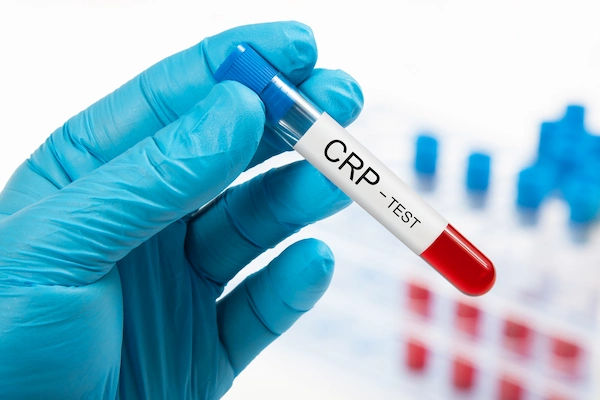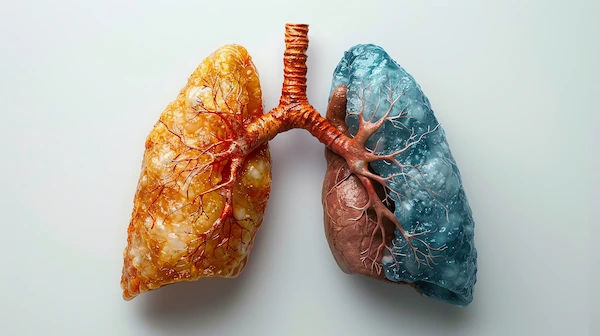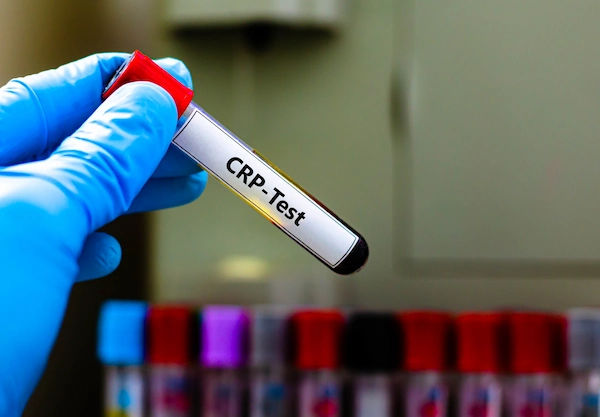Blood Tests for Arthritis Diagnosis
Discover how blood tests like RF, Anti-CCP, CRP, and ANA help diagnose different types of arthritis. Learn what results mean and book tests via Apollo 24|7.

Written by Dr. Vasanthasree Nair
Reviewed by Dr. Mohammed Kamran MBBS, FIDM
Last updated on 30th Jul, 2025

Blood Tests for Arthritis Diagnosis
Introduction
If you’ve been experiencing joint pain, stiffness, or swelling, your doctor may recommend blood tests to help diagnose arthritis. Arthritis is a common condition that affects millions of people, causing discomfort and sometimes limiting mobility. Blood tests play a crucial role in identifying the type of arthritis you might have and guiding the right treatment plan.
In this article, we’ll explain the different blood tests used for arthritis diagnosis, what they mean, and how they help in managing the condition.
Why Are Blood Tests Needed for Arthritis?
Arthritis isn’t just one disease; there are over 100 different types, with osteoarthritis (OA) and rheumatoid arthritis (RA) being the most common. While OA is usually caused by wear and tear of joints, RA is an autoimmune disorder where the body attacks its tissues.
Blood tests help doctors:
- Confirm or rule out autoimmune arthritis (like RA or lupus).
- Differentiate between types of arthritis.
- Monitor disease progression and treatment effectiveness.
However, blood tests alone cannot diagnose arthritis. Doctors also consider symptoms, physical exams, and imaging tests (like X-rays or MRIs).
Common Blood Tests for Arthritis Diagnosis
1. Rheumatoid Factor (RF) Test
- What it checks for: RF is an antibody found in many (but not all) people with rheumatoid arthritis.
- What a positive result means: High RF levels may indicate RA, but some healthy people or those with other conditions (like infections) can also have RF.
- Limitations: Not everyone with RA tests positive, especially in the early stages.
2. Anti-Cyclic Citrullinated Peptide (Anti-CCP) Test
- What it checks for: Another antibody linked to RA.
- What a positive result means: More specific than RF; if positive, it strongly suggests RA.
- Why it’s useful: Helps diagnose RA early, even before symptoms worsen.
3. C-Reactive Protein (CRP) Test
- What it checks for: CRP is a protein that increases with inflammation.
- What a high level means: Indicates inflammation, which is common in RA, lupus, or infections.
- Also used for: Monitoring disease activity and treatment response.
4. Erythrocyte Sedimentation Rate (ESR or "Sed Rate")
- What it checks for: Measures how quickly red blood cells settle in a tube; faster settling means more inflammation.
- What a high ESR means: Suggests inflammation but doesn’t pinpoint the cause (could be arthritis, infection, or other conditions).
5. Antinuclear Antibody (ANA) Test
- What it checks for: Looks for antibodies that attack the body’s cells.
- What a positive result means: May indicate lupus or other autoimmune diseases, not just RA.
- Follow-up tests needed: If positive, more specific tests (like anti-dsDNA or anti-Smith) may be required.
6. Complete Blood Count (CBC)
- What it checks for: Measures red and white blood cells and platelets.
- Why it’s useful: Helps detect anaemia (common in RA) or infections.
Consult a Top Physician For More Health Benefits
What Do the Results Mean?
- Positive RF or Anti-CCP + High CRP/ESR: Likely rheumatoid arthritis.
- Positive ANA + Joint Symptoms: Could be lupus or another autoimmune arthritis.
- Normal Blood Tests but Joint Pain: May suggest osteoarthritis (wear-and-tear arthritis, not autoimmune).
Important Note: Some people with arthritis have normal blood tests, especially in the early stages. Your doctor will consider all factors before making a diagnosis.
How to Prepare for Arthritis Blood Tests
- Fasting: Usually not required, but check with your doctor.
- Medications: Some drugs (like steroids) can affect results; inform your doctor.
- Hydration: Drink water to make blood drawing easier.
What’s Next After Diagnosis?
If arthritis is confirmed, treatment may include:
- Medications (pain relievers, anti-inflammatory drugs, or disease-modifying drugs for RA).
- Physical therapy to improve joint function.
- Lifestyle changes (exercise, weight management, and a healthy diet).
Tips for Managing Arthritis Symptoms
1. Stay Active
- Gentle exercises like walking, swimming, or yoga help maintain joint flexibility.
- Avoid high-impact activities if joints are swollen.
2. Eat an Anti-Inflammatory Diet
- Include: Fatty fish (salmon), nuts, olive oil, berries, and leafy greens.
- Avoid: Processed foods, excess sugar, and fried items.
3. Maintain a Healthy Weight
- Extra weight puts stress on joints, worsening pain (especially in knees and hips).
4. Use Heat or Cold Therapy
- Heat (warm baths, heating pads) relaxes stiff joints.
- Cold packs reduce swelling and numbness.
5. Get Enough Rest
- Fatigue is common in arthritis; listen to your body and take breaks.
When to See a Doctor?
Consult a rheumatologist if you have:
- Persistent joint pain, swelling, or stiffness (especially in the morning).
- Redness or warmth around joints.
- Difficulty moving or performing daily tasks.
Early diagnosis and treatment can slow disease progression and improve quality of life.
Book a Blood Test or Consultation with Apollo 24|7
If you suspect arthritis or need follow-up tests, Apollo 24|7 offers:
- Easy blood test bookings from home.
- Expert rheumatologist consultations online or in person.
- Fast, accurate results with personalised care.
Take the first step toward better joint health; schedule your test today!
Get Your Health Assessed Here
Conclusion
Blood tests are a helpful tool in diagnosing arthritis, but they’re just one piece of the puzzle. If you’re experiencing joint issues, don’t ignore them; early intervention can make a big difference. With the right care, many people with arthritis lead active, fulfilling lives.
Consult a Top Physician For More Health Benefits
Consult a Top Physician For More Health Benefits

Dr. J T Hema Pratima
General Practitioner
9 Years • MBBS, Fellowship in Diabetes Mellitus
Chennai
Apollo 24|7 Clinic - Tamilnadu, Chennai
(350+ Patients)

Dr Divya Lekha Gunta
General Practitioner
10 Years • MBBS, MD (Pathology)
Visakhapatnam
Apollo 24|7 Clinic - Andhra Pradesh, Visakhapatnam

Dr. Siri Nallapu
General Practitioner
5 Years • MBBS
Hyderabad
Apollo 24|7 Clinic, Hyderabad

Dr. Shesham Srinidhi
General Practitioner
5 Years • MD(physician)
Hyderabad
Apollo 24|7 Clinic, Hyderabad
(150+ Patients)

Dr. Dhankecha Mayank
General Practitioner
6 Years • MBBS
Hyderabad
Apollo 24|7 Clinic - Telangana, Hyderabad
Consult a Top Physician For More Health Benefits

Dr. J T Hema Pratima
General Practitioner
9 Years • MBBS, Fellowship in Diabetes Mellitus
Chennai
Apollo 24|7 Clinic - Tamilnadu, Chennai
(350+ Patients)

Dr Divya Lekha Gunta
General Practitioner
10 Years • MBBS, MD (Pathology)
Visakhapatnam
Apollo 24|7 Clinic - Andhra Pradesh, Visakhapatnam

Dr. Siri Nallapu
General Practitioner
5 Years • MBBS
Hyderabad
Apollo 24|7 Clinic, Hyderabad

Dr. Shesham Srinidhi
General Practitioner
5 Years • MD(physician)
Hyderabad
Apollo 24|7 Clinic, Hyderabad
(150+ Patients)

Dr. Dhankecha Mayank
General Practitioner
6 Years • MBBS
Hyderabad
Apollo 24|7 Clinic - Telangana, Hyderabad




.webp)
